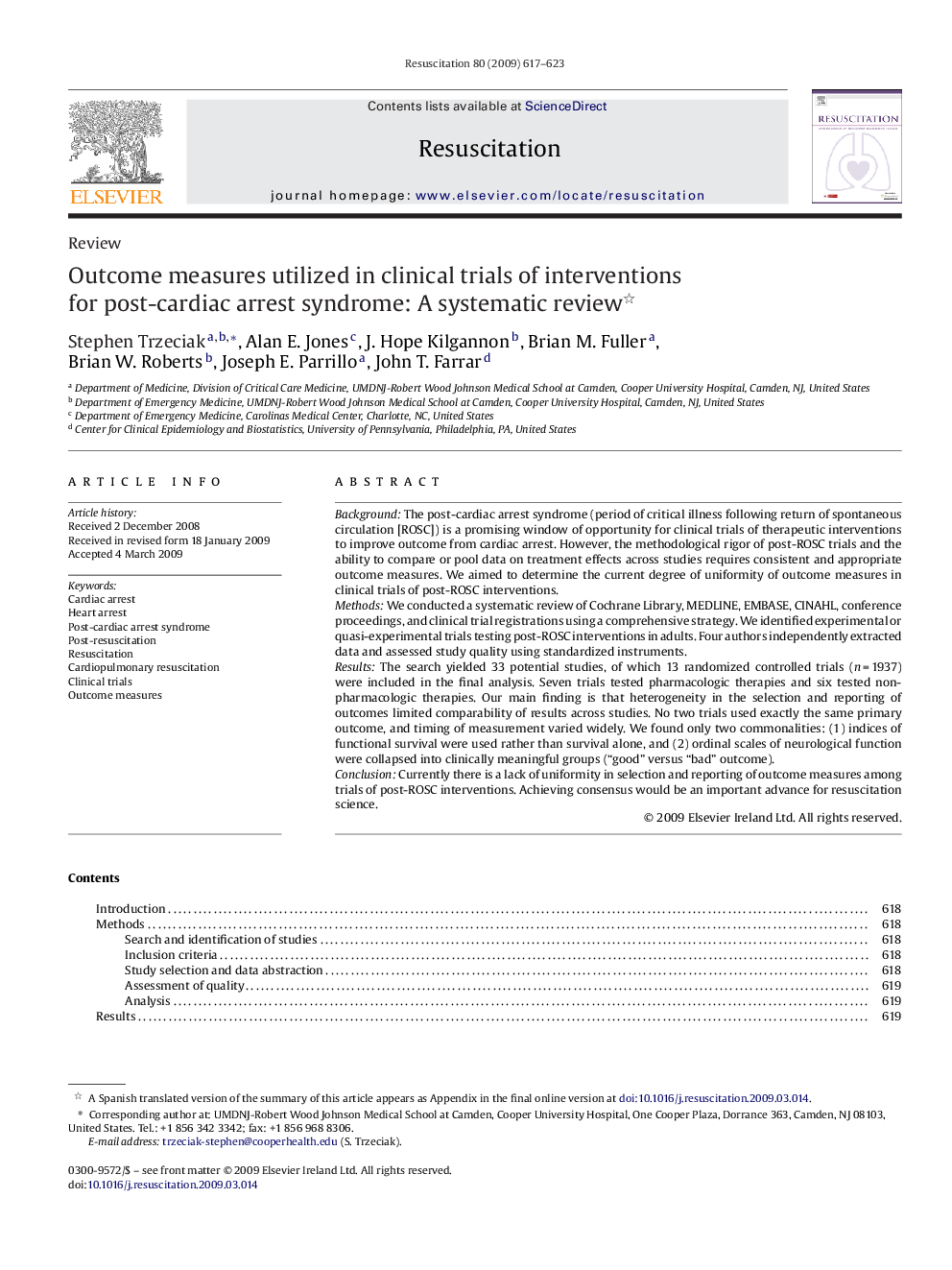| Article ID | Journal | Published Year | Pages | File Type |
|---|---|---|---|---|
| 3011117 | Resuscitation | 2009 | 7 Pages |
BackgroundThe post-cardiac arrest syndrome (period of critical illness following return of spontaneous circulation [ROSC]) is a promising window of opportunity for clinical trials of therapeutic interventions to improve outcome from cardiac arrest. However, the methodological rigor of post-ROSC trials and the ability to compare or pool data on treatment effects across studies requires consistent and appropriate outcome measures. We aimed to determine the current degree of uniformity of outcome measures in clinical trials of post-ROSC interventions.MethodsWe conducted a systematic review of Cochrane Library, MEDLINE, EMBASE, CINAHL, conference proceedings, and clinical trial registrations using a comprehensive strategy. We identified experimental or quasi-experimental trials testing post-ROSC interventions in adults. Four authors independently extracted data and assessed study quality using standardized instruments.ResultsThe search yielded 33 potential studies, of which 13 randomized controlled trials (n = 1937) were included in the final analysis. Seven trials tested pharmacologic therapies and six tested non-pharmacologic therapies. Our main finding is that heterogeneity in the selection and reporting of outcomes limited comparability of results across studies. No two trials used exactly the same primary outcome, and timing of measurement varied widely. We found only two commonalities: (1) indices of functional survival were used rather than survival alone, and (2) ordinal scales of neurological function were collapsed into clinically meaningful groups (“good” versus “bad” outcome).ConclusionCurrently there is a lack of uniformity in selection and reporting of outcome measures among trials of post-ROSC interventions. Achieving consensus would be an important advance for resuscitation science.
